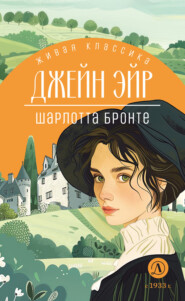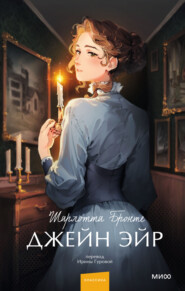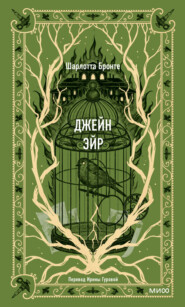По всем вопросам обращайтесь на: info@litportal.ru
(©) 2003-2024.
✖
Villette
Настройки чтения
Размер шрифта
Высота строк
Поля
Graham did like it very well, and almost always got it. To do him justice, he would have shared his prize with her to whom he owed it; but that was never allowed: to insist, was to ruffle her for the evening. To stand by his knee, and monopolize his talk and notice, was the reward she wanted – not a share of the cake.
With curious readiness did she adapt herself to such themes as interested him. One would have thought the child had no mind or life of her own, but must necessarily live, move, and have her being in another: now that her father was taken from her, she nestled to Graham, and seemed to feel by his feelings: to exist in his existence. She learned the names of all his schoolfellows in a trice: she got by heart their characters as given from his lips: a single description of an individual seemed to suffice. She never forgot, or confused identities: she would talk with him the whole evening about people she had never seen, and appear completely to realise their aspect, manners, and dispositions. Some she learned to mimic: an under-master, who was an aversion of young Bretton's, had, it seems, some peculiarities, which she caught up in a moment from Graham's representation, and rehearsed for his amusement; this, however, Mrs. Bretton disapproved and forbade.
The pair seldom quarrelled; yet once a rupture occurred, in which her feelings received a severe shock.
One day Graham, on the occasion of his birthday, had some friends – lads of his own age – to dine with him. Paulina took much interest in the coming of these friends; she had frequently heard of them; they were amongst those of whom Graham oftenest spoke. After dinner, the young gentlemen were left by themselves in the dining-room, where they soon became very merry and made a good deal of noise. Chancing to pass through the hall, I found Paulina sitting alone on the lowest step of the staircase, her eyes fixed on the glossy panels of the dining-room door, where the reflection of the hall-lamp was shining; her little brow knit in anxious, meditation.
"What are you thinking about, Polly?"
"Nothing particular; only I wish that door was clear glass – that I might see through it. The boys seem very cheerful, and I want to go to them: I want to be with Graham, and watch his friends."
"What hinders you from going?"
"I feel afraid: but may I try, do you think? May I knock at the door, and ask to be let in?"
I thought perhaps they might not object to have her as a playmate, and therefore encouraged the attempt.
She knocked – too faintly at first to be heard, but on a second essay the door unclosed; Graham's head appeared; he looked in high spirits, but impatient.
"What do you want, you little monkey?"
"To come to you."
"Do you indeed? As if I would be troubled with you! Away to mamma and Mistress Snowe, and tell them to put you to bed." The auburn head and bright flushed face vanished, – the door shut peremptorily. She was stunned.
"Why does he speak so? He never spoke so before," she said in consternation. "What have I done?"
"Nothing, Polly; but Graham is busy with his school-friends."
"And he likes them better than me! He turns me away now they are here!"
I had some thoughts of consoling her, and of improving the occasion by inculcating some of those maxims of philosophy whereof I had ever a tolerable stock ready for application. She stopped me, however, by putting her fingers in her ears at the first words I uttered, and then lying down on the mat with her face against the flags; nor could either Warren or the cook root her from that position: she was allowed to lie, therefore, till she chose to rise of her own accord.
Graham forgot his impatience the same evening, and would have accosted her as usual when his friends were gone, but she wrenched herself from his hand; her eye quite flashed; she would not bid him good-night; she would not look in his face. The next day he treated her with indifference, and she grew like a bit of marble. The day after, he teased her to know what was the matter; her lips would not unclose. Of course he could not feel real anger on his side: the match was too unequal in every way; he tried soothing and coaxing. "Why was she so angry? What had he done?" By-and-by tears answered him; he petted her, and they were friends. But she was one on whom such incidents were not lost: I remarked that never after this rebuff did she seek him, or follow him, or in any way solicit his notice. I told her once to carry a book or some other article to Graham when he was shut up in his study.
"I shall wait till he comes out," said she, proudly; "I don't choose to give him the trouble of rising to open the door."
Young Bretton had a favourite pony on which he often rode out; from the window she always watched his departure and return. It was her ambition to be permitted to have a ride round the courtyard on this pony; but far be it from her to ask such a favour. One day she descended to the yard to watch him dismount; as she leaned against the gate, the longing wish for the indulgence of a ride glittered in her eye.
"Come, Polly, will you have a canter?" asked Graham, half carelessly.
I suppose she thought he was too careless.
"No, thank you," said she, turning away with the utmost coolness.
"You'd better," pursued he. "You will like it, I am sure."
"Don't think I should care a fig about it," was the response.
"That is not true. You told Lucy Snowe you longed to have a ride."
"Lucy Snowe is a tatter-box," I heard her say (her imperfect articulation was the least precocious thing she had about her); and with this; she walked into the house.
Graham, coming in soon after, observed to his mother, – "Mamma, I believe that creature is a changeling: she is a perfect cabinet of oddities; but I should be dull without her: she amuses me a great deal more than you or Lucy Snowe."
* * * * *
"Miss Snowe," said Paulina to me (she had now got into the habit of occasionally chatting with me when we were alone in our room at night), "do you know on what day in the week I like Graham best?"
"How can I possibly know anything so strange? Is there one day out of the seven when he is otherwise than on the other six?"
"To be sure! Can't you see? Don't you know? I find him the most excellent on a Sunday; then we have him the whole day, and he is quiet, and, in the evening, so kind."
This observation was not altogether groundless: going to church, &c., kept Graham quiet on the Sunday, and the evening he generally dedicated to a serene, though rather indolent sort of enjoyment by the parlour fireside. He would take possession of the couch, and then he would call Polly.
Graham was a boy not quite as other boys are; all his delight did not lie in action: he was capable of some intervals of contemplation; he could take a pleasure too in reading, nor was his selection of books wholly indiscriminate: there were glimmerings of characteristic preference, and even of instinctive taste in the choice. He rarely, it is true, remarked on what he read, but I have seen him sit and think of it.
Polly, being near him, kneeling on a little cushion or the carpet, a conversation would begin in murmurs, not inaudible, though subdued. I caught a snatch of their tenor now and then; and, in truth, some influence better and finer than that of every day, seemed to soothe Graham at such times into no ungentle mood.
"Have you learned any hymns this week, Polly?"
"I have learned a very pretty one, four verses long. Shall I say it?"
"Speak nicely, then: don't be in a hurry."
The hymn being rehearsed, or rather half-chanted, in a little singing voice, Graham would take exceptions at the manner, and proceed to give a lesson in recitation. She was quick in learning, apt in imitating; and, besides, her pleasure was to please Graham: she proved a ready scholar. To the hymn would succeed some reading – perhaps a chapter in the Bible; correction was seldom required here, for the child could read any simple narrative chapter very well; and, when the subject was such as she could understand and take an interest in, her expression and emphasis were something remarkable. Joseph cast into the pit; the calling of Samuel; Daniel in the lions' den; – these were favourite passages: of the first especially she seemed perfectly to feel the pathos.
"Poor Jacob!" she would sometimes say, with quivering lips. "How he loved his son Joseph! As much," she once added – "as much, Graham, as I love you: if you were to die" (and she re-opened the book, sought the verse, and read), "I should refuse to be comforted, and go down into the grave to you mourning."
With these words she gathered Graham in her little arms, drawing his long-tressed head towards her. The action, I remember, struck me as strangely rash; exciting the feeling one might experience on seeing an animal dangerous by nature, and but half-tamed by art, too heedlessly fondled. Not that I feared Graham would hurt, or very roughly check her; but I thought she ran risk of incurring such a careless, impatient repulse, as would be worse almost to her than a blow. On the whole, however, these demonstrations were borne passively: sometimes even a sort of complacent wonder at her earnest partiality would smile not unkindly in his eyes. Once he said: – "You like me almost as well as if you were my little sister, Polly."
"Oh! I do like you," said she; "I do like you very much."
I was not long allowed the amusement of this study of character. She had scarcely been at Bretton two months, when a letter came from Mr. Home, signifying that he was now settled amongst his maternal kinsfolk on the Continent; that, as England was become wholly distasteful to him, he had no thoughts of returning hither, perhaps, for years; and that he wished his little girl to join him immediately.
"I wonder how she will take this news?" said Mrs. Bretton, when she had read the letter. I wondered, too, and I took upon myself to communicate it.
Repairing to the drawing-room – in which calm and decorated apartment she was fond of being alone, and where she could be implicitly trusted, for she fingered nothing, or rather soiled nothing she fingered – I found her seated, like a little Odalisque, on a couch, half shaded by the drooping draperies of the window near. She seemed happy; all her appliances for occupation were about her; the white wood workbox, a shred or two of muslin, an end or two of ribbon collected for conversion into doll-millinery. The doll, duly night-capped and night-gowned, lay in its cradle; she was rocking it to sleep, with an air of the most perfect faith in its possession of sentient and somnolent faculties; her eyes, at the same time, being engaged with a picture-book, which lay open on her lap.
"Miss Snowe," said she in a whisper, "this is a wonderful book. Candace" (the doll, christened by Graham; for, indeed, its begrimed complexion gave it much of an Ethiopian aspect) – "Candace is asleep now, and I may tell you about it; only we must both speak low, lest she should waken. This book was given me by Graham; it tells about distant countries, a long, long way from England, which no traveller can reach without sailing thousands of miles over the sea. Wild men live in these countries, Miss Snowe, who wear clothes different from ours: indeed, some of them wear scarcely any clothes, for the sake of being cool, you know; for they have very hot weather. Here is a picture of thousands gathered in a desolate place – a plain, spread with sand – round a man in black, – a good, good Englishman – a missionary, who is preaching to them under a palm-tree." (She showed a little coloured cut to that effect.) "And here are pictures" (she went on) "more stranger" (grammar was occasionally forgotten) "than that. There is the wonderful Great Wall of China; here is a Chinese lady, with a foot littler than mine. There is a wild horse of Tartary; and here, most strange of all – is a land of ice and snow, without green fields, woods, or gardens. In this land, they found some mammoth bones: there are no mammoths now. You don't know what it was; but I can tell you, because Graham told me. A mighty, goblin creature, as high as this room, and as long as the hall; but not a fierce, flesh-eating thing, Graham thinks. He believes, if I met one in a forest, it would not kill me, unless I came quite in its way; when it would trample me down amongst the bushes, as I might tread on a grasshopper in a hayfield without knowing it."
Thus she rambled on.
"Polly," I interrupted, "should you like to travel?"
"Not just yet," was the prudent answer; "but perhaps in twenty years, when I am grown a woman, as tall as Mrs. Bretton, I may travel with Graham. We intend going to Switzerland, and climbing Mount Blanck; and some day we shall sail over to South America, and walk to the top of Kim-kim-borazo."
"But how would you like to travel now, if your papa was with you?"

















